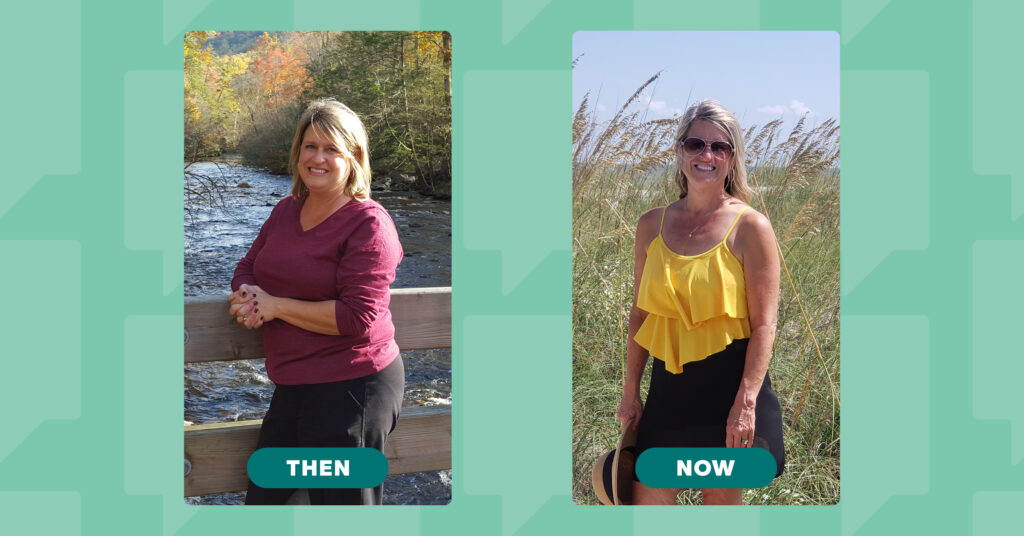In our fast-paced world, it’s easy to overlook the importance of self-care. We often get caught up in the hustle and bustle of daily life, neglecting our physical and mental well-being in the process. However, taking the time to prioritize self-care is essential for maintaining a healthy and balanced lifestyle.
As we head into spring’s longer days and warmer weather, it’s the perfect time to replenish our bodies and minds with a fresh routine. After the winter months, when we often feel a bit sluggish or mentally drained, finding new simple ways to reinvigorate our daily actions can make a world of difference in our overall well-being.
Benefits of self-care include reduced stress, improved mood, increased resilience, enhanced physical health, better relationships, and greater overall satisfaction with life.
In this blog, we’re answering the most common questions by getting into what self-care actually is, debunking misconceptions, and providing ideas for self-care activities that are simple to implement despite limited time and resources.
What is Self-Care?
The phrase self-care is often synonymous with a trip to the spa, a day of being pampered or a 12-step skincare routine. Thanks to social media, it also gets overused a lot. However, it’s much more than surface-level indulgences (although there isn’t anything wrong with that!), yet much simpler. Self-care is the practice of taking intentional actions to maintain and improve one’s physical, mental, and emotional health. It involves making choices that prioritize your well-being and setting boundaries to protect your energy and time.
So, while going to the spa, salon, or yoga class can be considered forms of self-care, there are also many other ways to prioritize your physical, mental, and emotional health.
How Can I Start Practicing Self-Care?
Contrary to popular belief, a self-care routine doesn’t have to be elaborate, expensive or time-consuming. Start by identifying areas of your life where you feel overwhelmed or neglected. Then, choose self-care activities that address those specific needs. Start small and gradually incorporate more nurturing activities to develop a regular self-care routine.
What is a Self-Care Routine?
A self-care routine is a set of consistent practices and activities that you engage in regularly to promote your physical, emotional, and mental well-being.
Five simple ways to invigorate your daily activities and start building a self-care routine.
Most of these consist of improving actions you already take through better planning and awareness.
Get 7-9 Hours of Sleep
Regardless of what you want to accomplish, sleep is critical and one of the most important aspects for health, cognitive function, and longevity. Yet, it’s often something many people sacrifice. The Centers for Disease Control and Prevention recommend adults get at least 7-9 hours of sleep each night.
Getting less than 7 hours can have various implications including an increased risk of chronic diseases and negative body composition/weight changes.
Improving your sleep hygiene can greatly improve the length and quality of your sleep. Apply some of these tips from the National Institute of Health to maximize your restful shuteye.
- Set a sleep and wake schedule you follow consistently daily
- Remove distractions such as noises, bright lights, and digital devices at least an hour before bed.
- Get sunlight in the morning and throughout the day.
- Avoid caffeine in the afternoon and evening.
- Exercise regularly but at least 3 hours before bedtime.
- Keep the temperature in your bedroom cool.
- Avoid alcoholic drinks before bed.
- Avoid large meals late at night.
- Relax before bed: take a bath, read a book or listen to relaxing music.
Increase Your Daily Movement Beyond Exercise
Whether you currently exercise or not, finding ways to be more active is essential. This is especially true if you have a sedentary job or lifestyle. Non-Exercise Activity Thermogenesis (NEAT) refers to the energy you burn from everyday movements such as walking, housework, yardwork, or other daily activities. NEAT is the second largest calorie burner for most people and can have a significant impact on weight and body composition goals.
Apply these tips to help you get more daily movement:
- Set a step goal and track your steps using an app (The Stronger U App syncs with Apple Health to show your daily steps in one place!)
- Take several breaks to go for short walks throughout the day
- Walk and talk during calls
- Take the stairs
- Park further away
- Find a new active hobby that requires you to move
Practice Mindful Eating
How you eat is just as important as what you eat! Many of us strive to have a balanced diet but disregard how we consume our food. Do you rush through your meals, eat as you work, scroll through your phone, or mindlessly snack while watching TV? If you answered yes to any or all, you’re not alone. Distractions are a part of our everyday lives but could also deter us from achieving our goals.
It takes your brain approximately 20 minutes to receive fullness cues, which is why eating too quickly can lead to overeating. Mindful eating can be a powerful tool to improve your relationship with food and reach your goals. Mindful eating refers to limiting distractions and focusing on your meal, which can support meal satisfaction and weight management.
One of the most impactful things you can do to eat more mindfully is sit down with your meal and tune out electronic devices (no email checking, scrolling social media, or Netflix). It may feel challenging at first, but this will allow you to be present, which makes you more conscious of what’s on your plate, your portions, and your fullness cues. When focusing on your food, you can better engage your senses and enjoy the aromas, textures, colors, and flavors.
Use this Hunger Scale to assess your body’s cues during a meal while aiming to stay between 4 and 6.

Set a Health Goal
Setting a goal gives you a sense of purpose, direction, and a meaningful target to work toward achieving. Begin by identifying what physical or mental health goal you want to achieve, then map out what small, actionable steps you need to take toward making it a reality.
This is a scenario when having a coach can be a game changer for support, guidance, and accountability. When you work with a Stronger U Coach for example, together you determine your objective, develop a clear action plan to achieve it, and track your progress in your Stronger U App. The app has a “Goal” feature that gives you daily visibility of your goal, reminding you of what you’re striving for so you can celebrate small wins along the way and progress toward larger goals.
Engage in a Community

Surround yourself with supportive and like-minded individuals who uplift and inspire you. Whether it’s joining a fitness class, participating in a hobby group, or volunteering in your community, connecting with others can provide a sense of belonging and purpose.
Not sure where to find community? In addition to personalized coaching and an innovative app, Stronger U members have access to our members-only Stronger U Community filled with daily motivation, inspiration, and guidance from members and Stronger U Coaches. Plus, there, you’ll also find events, webinars, and challenges. Up next: Our March virtual Step into Spring fun run to celebrate the conclusion of our Stronger U Transformation Challenge. Learn more about becoming a Stronger U member and join the happiest community on the internet.
Based on the ideas mentioned above, an example of a self-care routine might include:
- Going to bed and waking up at the same time each day to get in 7-9 hours of sleep
- Starting your morning with a meditation or quiet time
- Taking regular breaks throughout the day to get up and move
- Turning off screens and devices while having lunch
- Participating in a daily hobby or self-care activity that aligns with your goal
- Connecting with other people who have similar interests as you
Self-care doesn’t have to be expensive, elaborate, or complex and the secret to establishing a sustainable routine is found in your daily habits. Each time you practice wellness activities and take intentional action toward improving the areas of your lifestyle that could use more attention, you are, in fact, practicing self-care. If you feel like you could use more guidance on where to begin, take our quiz and get a free 7-Day Action Plan that serves as a step-by-step guide on building habits around nutrition and lifestyle that support your well-being.
Your Common Questions About Self-Care, Answered:
What are the best ways to practice self-care?
The best ways to practice self-care vary from person to person, but generally include activities that promote relaxation, stress reduction, developing healthy habits, and personal growth.
Do I need to practice self-care?
Everyone can benefit from practicing self-care, regardless of age, gender, or background. Taking care of yourself is essential for overall health and well-being.
How soon can I expect to see the benefits from self-care?
The timeline for experiencing benefits from self-care varies from person to person, but many people notice positive changes in their well-being relatively quickly after incorporating self-care practices into their daily lives.
What is daily self-care?
Daily self-care involves incorporating small, intentional acts of self-care into your everyday routine to promote overall well-being and prevent burnout.
What is mindfulness? Is it different from self-care?
Mindfulness is the practice of being present in the moment and paying attention to thoughts, feelings, sensations, and the environment without judgment. While mindfulness is often a component of self-care, they are not the same thing. Self-care encompasses a broader range of activities and practices aimed at nurturing one’s overall well-being.
What is well-being? Is it different from self-care?
Well-being refers to the state of being healthy, happy, and fulfilled in various aspects of life, including physical, emotional, social, and spiritual. While self-care is the actions you that contribute to achieving well-being.
References
Centers for Disease Control and Prevention (2022). Are you getting enough sleep? https://www.cdc.gov/sleep/features/getting-enough-sleep.html
National Institutes of Health. Healthy Sleep. https://medlineplus.gov/healthysleep.html










